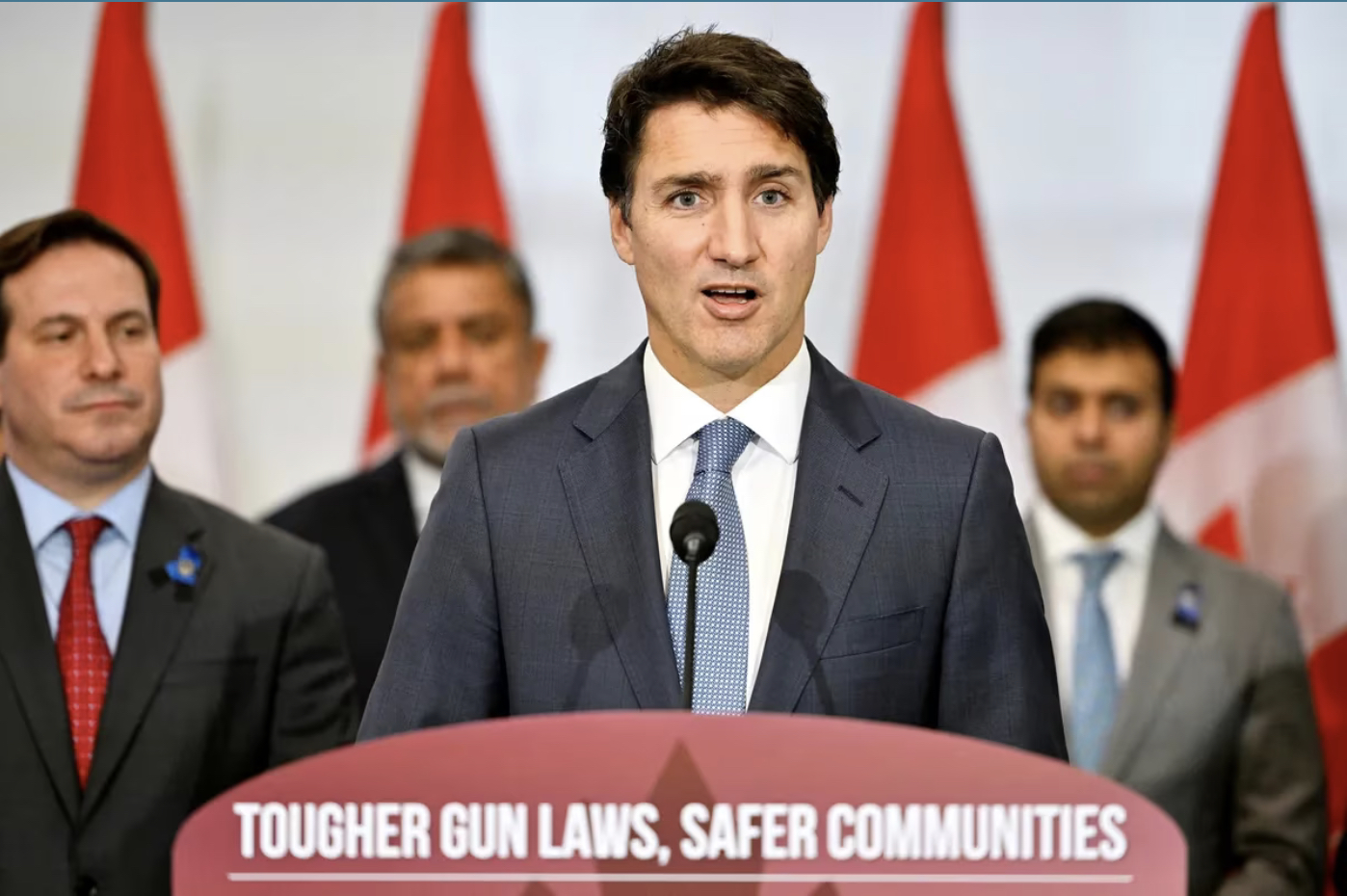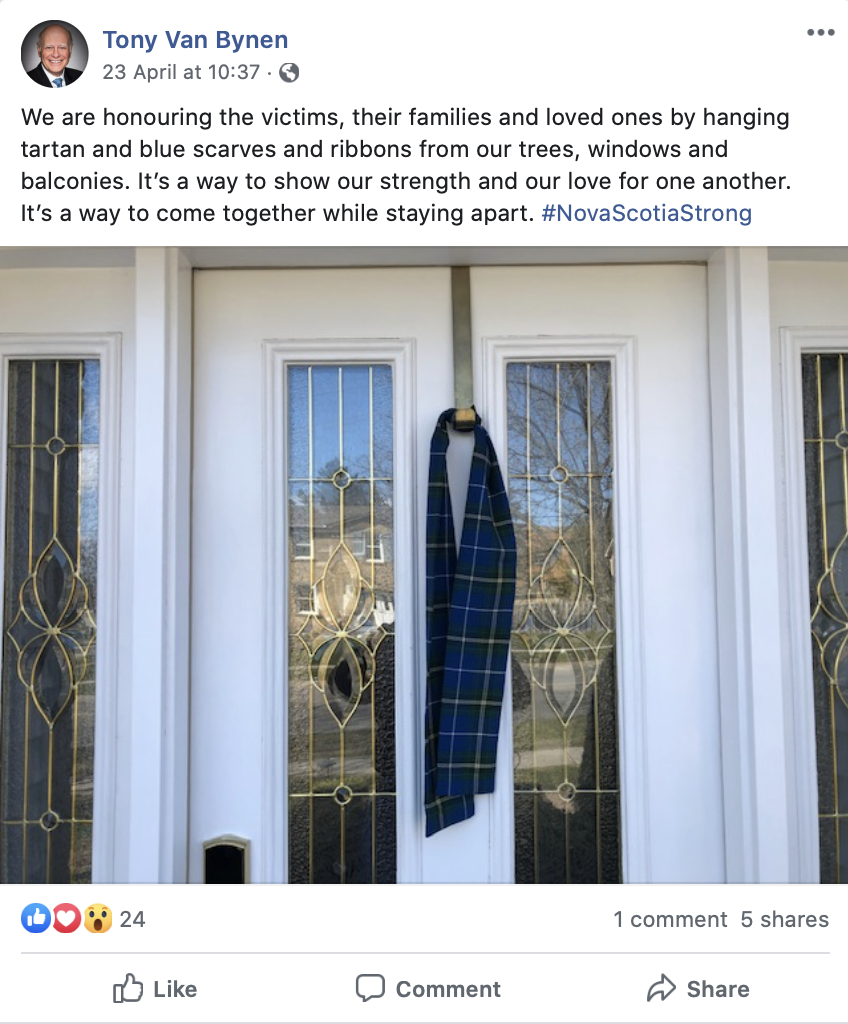I came to the conclusion some time ago that Justin Trudeau has no intention of banning handguns.
Over the years we've all been strung along with promised initiatives to tackle the problem of gun crime but they all fall short of what is needed. A complete ban.
No-one outside the police and military needs a handgun.
I’ve been living here in Canada since 2010 and over that time gun crime has shot up. In the major national or big city newspapers, reports on killings involving a handgun have moved from the front page to the inside pages. It's different, of course, if someone famous is shot dead.
Handguns have even been used on Main Street here in Newmarket - generally regarded as a safe Town - and people have been wounded.
Not so lucky
Away from the downtown, others have not been so lucky.
The Globe and Mail editorial yesterday drew our attention to a
“sharp, and accelerating, increase in gun crime, which hit a record 4,741 incidents in 2022, a doubling since 2015. Adjusted for population, there were 12.18 gun crimes for every 100,000 Canadians last year, the highest rate on record.”
The centre-right Globe and Mail says:
“Neither the Liberals nor the Conservatives have proposed what would be a necessary first step in curtailing gun violence: a complete ban on handgun ownership.”
Handguns banned in UK after Dunblane massacre
There is no right to bear arms in Canada.
This is also the case in the UK which banned handguns after the Dunblane massacre in Scotland where 16 elementary school children and their teacher were shot and killed in the school gymnasium on 13 March 1996. The killer, Thomas Hamilton, had a firearms certificate and could legally own handguns.
I was an MP at the time and voted for a complete ban. I've no regrets.
Portapique and the Mass Casualty Commission
After Portapique, the worst massacre in Canadian history, the Government danced around the issue. Instead of acting purposefully Trudeau dragged his feet, unwilling to risk alienating the gun-owners. So he triangulated in true Clinton fashion.
Now, after a long drawn out inquiry, the attention of the public has inevitably moved on to other issues. And so too has the Prime Minister’s.
Our own MP in Newmarket-Aurora doesn't create waves. He will just go with the flow.
It's so sad.
It doesn't have to be this way.
(Click "Read more" below for the Globe and Mail editorial: The rising tide of violent crime can’t be ignored. It’s time to ban handguns)
This email address is being protected from spambots. You need JavaScript enabled to view it.
Update on 30 August 2023: From CNN: And this is what it is like south of the border. Since 2014 one eighth of the American population is estimated to have lived within one mile of a mass shooting. And Congress is paralysed, unable and unwilling to act.
The rising tide of violent crime can’t be ignored. It’s time to ban handguns
There is not so much a violent crime wave sweeping Canada as a tide of crime that has been rising for years, and is now reaching deeply concerning levels. 
The data released last month by Statistics Canada are shocking: the number of police-reported violent crimes nationwide shot up to 531,243 in 2022, an increase of almost two-fifths from 2015, all of it on the Liberals’ watch. Adjusted for population growth, the picture is nearly as bad: there were 1,365 violent crimes per 100,000 Canadians in 2022, a 27-per-cent increase since 2015, and the worst year since 2006.
Even more worrisome is the sharp, and accelerating, increase in gun crime, which hit a record 4,741 incidents in 2022, a doubling since 2015. Adjusted for population, there were 12.18 gun crimes for every 100,000 Canadians last year, the highest rate on record.
As the accompanying chart shows, the high tide of gun crime has built over several years, but rose faster after 2019. Those numbers likely understate the extent of the rise in crimes involving guns, since they only count the specific firearms offences in the Criminal Code.
The time for airily waving aside Canadians’ concerns about crime as some sort of collective delusion, or a political fixation by the Conservatives, is done. The numbers from Statscan make it clear that violent crime, and most particularly gun crime, is rising to patently unacceptable levels.
How curious, then, that last Monday when Prime Minister Justin Trudeau told reporters his government is focused on “the questions that are most important to Canadians,” crime did not make the list.
Correlation is not causation, despite the fairly tight overlap of Liberal policies such as relaxed bail rules with the increase in violent crimes. Still, what Trudeau government policies could be seen as pushing back the tide of violent crime?
Certainly, the freeze on handgun sales, inadequate as it is, would make that list. So would the tightening of bail rules that the government promised in the spring, were the bill with those measures not stuck in first reading.
On the other side of the ledger is the government’s loosening of bail rules in 2019, in response to court rulings. As well, the government eliminated or restricted in scope several mandatory minimum sentencing provisions, including for some gun crimes, in a bill that received royal assent last year.
Mostly, the issue is not what the Liberals have done but what they have not done, including speedily enacting tighter bail rules. Former justice minister David Lametti said in March that the Liberals would “move forward quickly” but, five months later, words have not become action.
What might be done in the short term? Conservative Leader Pierre Poilievre proposes boosting border resources to intercept weapons smuggled from the United States, tougher bail provisions for violent offenders accused of additional violent offences, and stiffer mandatory sentences for repeat firearms crimes. Those latter two proposals are both vague, and possibly unfair and unconstitutional.
Neither the Liberals nor the Conservatives have proposed what would be a necessary first step in curtailing gun violence: a complete ban on handgun ownership. The overwhelming majority of handgun owners are law-abiding, but their weapons can end up in the wrong hands. There has been an explosion in the number of registered handguns: 1.1-million in 2020, up 71 per cent since 2010.
There is increasing evidence that legal weapons are a problem: the U.S. Bureau of Alcohol, Tobacco, Firearms and Explosives recently said a third of the Canadian weapons used in a crime that it was asked to trace were legally exported.
Tighter border controls are part of the solution. A rethinking of bail and sentencing rules, beyond what the Liberals have proposed, is needed.
Most of all, the government needs to start by acknowledging that the rising tide of violent crime is a real concern, and not a figment of their opponents’ imagination.
